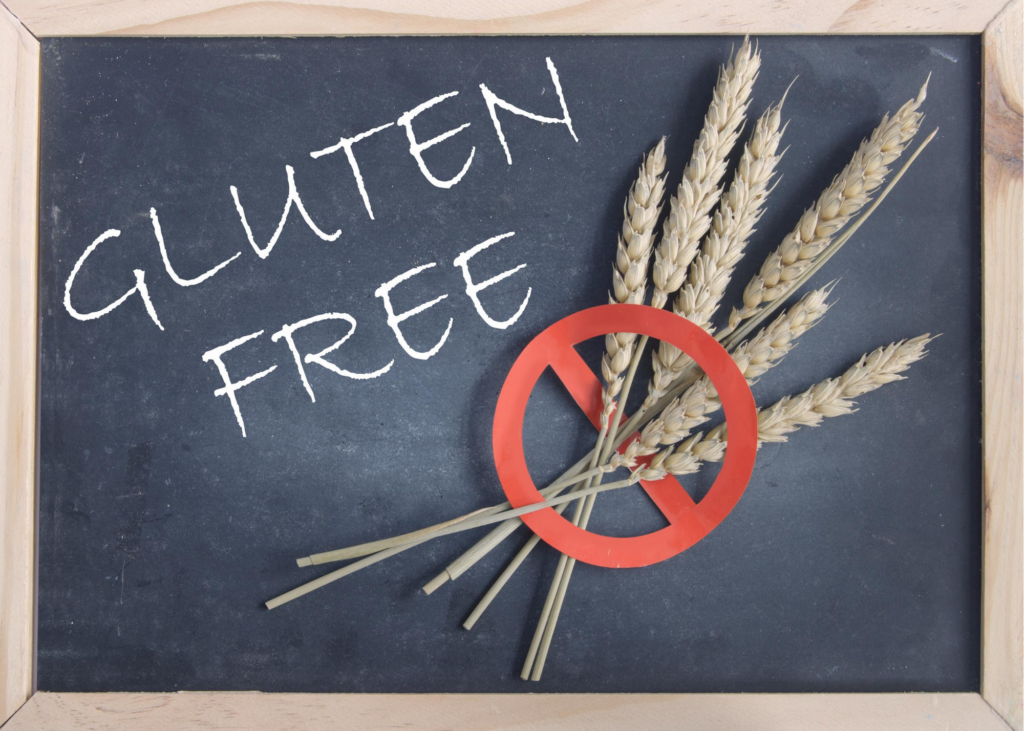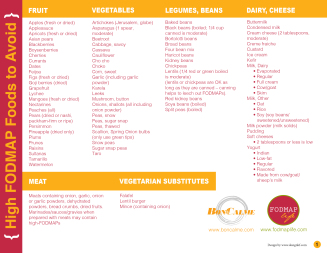When it comes to nutrition and weight loss, there are no shortage of ‘solutions’ recommended to us. How do you know if the touted results are accurate and reflective of the product being pushed, diet to follow, or supplement to take? Could it really just be as simple as going gluten-free, or removing a specific food or nutrient to see those pounds fall off?
Nope. There is no magic pill or ideal diet plan that will guarantee sustainable weight loss results.

Your naturopath, former high school best friend, or social media influencer might be claiming that your food sensitivity symptoms and inflammation response are all to blame on the gluten in your diet, but more than likely it all boils down to you carrying around excess body fat. Before restricting gluten from your diet, work towards losing weight first and see if that doesn’t make you feel better.
Table of Contents
ToggleBut isn’t going gluten-free going to help me lose weight?
Shouldn’t going gluten-free reduce the calories and carbs ingested, and help with losing weight?
Once again, nope.
When comparing the nutrition facts on gluten-free items versus their gluten-full counterparts, you’ll notice that the calories will be similar but the density of the calories in GF options are often higher (think about the physical size or amount of food in relation to the calories per serving).
If gluten is so harmful, wouldn’t it be better to restrict glutinous foods?
For individuals with medically diagnosed conditions, like celiac disease, gluten can be very harmful to consume. Gluten ingestion will elicit an autoimmune response that can disrupt or reduce nutrient uptake, also causing irreparable damage to the small intestine, to name a few symptoms and effects of the disease. However, only about 1{885586236f5820200058e61f9e2fcec1023d525f8b1a6e4e5a4fd7f3c0d65acb} of the US population is actually affected with celiac disease, the other 99{885586236f5820200058e61f9e2fcec1023d525f8b1a6e4e5a4fd7f3c0d65acb} need not consider gluten to be toxic.
Are you experiencing diarrhea, painful bloating and flatulence, vomiting, nausea, weight loss, or malnutrition when the smallest trace of gluten enters your system? If not, you probably don’t have a gluten intolerance or celiac disease. For the 1{885586236f5820200058e61f9e2fcec1023d525f8b1a6e4e5a4fd7f3c0d65acb} of the US population that does suffer from gluten intolerance, or has been medically diagnosed with celiac disease, adhering to a gluten-free diet is the only option for preserving their quality of life.
Gluten intolerance and celiac disease are serious and substantiated conditions for following a gluten free diet, but choosing to restrict gluten because an Instagram influencer said so is just a pseudo-science fad. Deciding to restrict gluten from your diet, and then being ‘bad’ by drinking a beer or two on Friday night indicates that you don’t actually benefit from avoiding gluten.
Food sensitivities do exist, and the bloating, indigestion, flatulence, and constipation could actually be caused by FODMAP carbohydrates, not gluten. Common FODMAP (Fermentable Oligo-, Di-, Mono-saccharides And Polyols) foods include:
- Onions and Garlic
- Apples, Cherries, Peaches, and Watermelon
- Asparagus, Brussel Sprouts, and Cauliflower
- Milk, Yogurt, and Soft Cheeses (Lactose-containing dairy products)
- High-Fructose Corn Syrup, Agave Nectar, and Honey

The list is quite extensive – if you’re experiencing digestive problems, try an elimination diet (period lasting at least 3 weeks up to 8 weeks) for high FODMAP foods to see if you find digestive relief avoiding those fermentable carbs. You can begin selectively, and in a controlled manner, reintroduce some high FODMAP foods into your diet because most individuals aren’t sensitive to the complete list of high FODMAP foods.
Gluten-free sounds healthier, doesn’t it? But is it really…?
If a food is labeled ‘gluten-free’ it is typically perceived as a healthy food that can be eaten in any quantity, with the serving size as optional rather than a suggestion or recommendation. Overeating foods that are as healthy without substantiation is something we’ve all fallen victim to at one time of our life or another.
What do food manufacturers do to offset the removal of gluten to make a GF blueberry muffin taste like something worth eating? Add in more fats and sugars, which will increase the overall calorie count of that gluten-free muffin.
What else do gluten-free eaters lose out on when removing glutinous flours and grains (wheat, rye, barely) from their diets? Minerals, micronutrients, and fiber that are either naturally occurring, or fortified with essential minerals, causing those individuals to be at risk of becoming vitamin deficient which can lead to a whole host of other health issues.
Deciding to go gluten-free results in individuals maintaining, or more often gaining weight, and is no healthier (and can potentially be less healthy) than eating a balanced whole-food diet with a calorie budget in mind. Restricting specific nutrients or certain foods (when it isn’t due to a medical need, like celiac disease or diagnosed gluten intolerance) isn’t a sustainable choice for a healthy lifestyle.
What’s the ideal recipe for weight loss?
It’s so simple, and yet frustratingly difficult to do effectively. Weight loss is a straightforward mathematical equation:
Calorie Deficit = Calorie Intake < Calorie Expenditure
…when a calorie deficit is maintained consistently over time, weight loss occurs.
Calorie intake refers to the total caloric value of foods and drinks consumed, and calorie expenditure refers to the caloric value of the energy the body uses to fuel basic bodily functions, exercise, and non-exercise activity (i.e. digestion of food, squatting, walking around the grocery store).
To create a calorie deficit, you can either:
- Decrease your calorie consumption
- Increase your energy expenditure
Pretty easy, right? Well, in practice it can be difficult to maintain consistency for either option. Sticking to a calorie budget to create a calorie deficit is the easier of the two variables, and can be tracked more accurately than calorie expenditure.
How do we know how many average calories are being consumed on a daily basis?
By tracking your foods and beverages, either through a physical food diary, or by using an app like My Fitness Pal as a digital food diary.
Making mindful nutrition choices that align with your calorie budget and weight loss goals consistently day-after-day, week-after-week, and month-after-month is a more sustainable healthy lifestyle to achieve weight loss (and weight maintenance) than a restriction diet plan.
If you’re looking to learn more about how to lose weight while still eating foods you love, check out our article here.
Building a healthy lifestyle takes time and patience. There are no quick fixes, secret diets, or magic pills that will give you the results you’re looking to achieve. Restricting gluten from your diet (when you don’t have a medical need) isn’t the answer you’ve been looking for to reach your weight loss goals.
Are you ready to make the healthy lifestyle changes necessary to get the body you’ve always wanted? Set up your nutrition consultation today.



